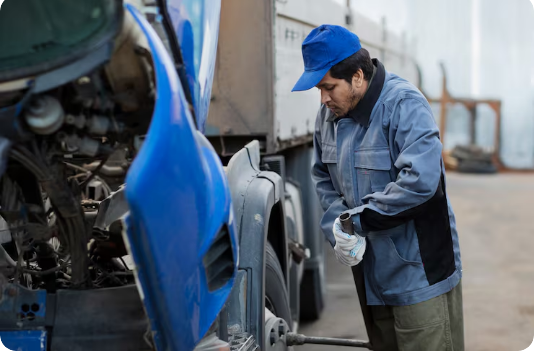In the transportation and logistics industry, maintaining a clean and professional fleet is more than just about appearance — it’s about performance, safety, and brand reputation. Trucks are constantly exposed to harsh road conditions, dirt, oil, salt, and grime that can cause corrosion and mechanical wear over time. Investing in the right truck wash equipment ensures your vehicles stay in optimal condition while saving time, water, and operational costs.
Why Clean Trucks Matter
A well-maintained truck is a reflection of a company’s professionalism and reliability. Whether you manage a logistics firm, construction fleet, or delivery service, keeping trucks clean improves visibility, prevents long-term damage, and enhances overall efficiency.
Regular washing removes corrosive materials such as road salt, mud, and chemicals that can deteriorate metal parts and paint finishes. Moreover, a clean truck operates more efficiently — reduced buildup on lights, mirrors, and sensors enhances safety on the road.
With modern truck wash equipment, fleet managers can automate the process, reducing manual labor while ensuring consistent cleaning quality across every vehicle.
Types of Truck Wash Equipment
There are various kinds of truck wash systems available, each designed to meet specific fleet needs and operation sizes. Understanding these systems helps businesses select the best setup for their facility.
1. Automatic Drive-Through Systems
These are ideal for large fleets that require frequent cleaning. Trucks drive through a fully automated tunnel where rotating brushes, high-pressure sprays, and detergents clean the exterior surfaces. These systems can handle multiple trucks per hour, making them efficient for logistics hubs and transport companies.
2. Gantry or Rollover Systems
In this setup, the vehicle remains stationary while the truck wash equipment moves around it. Gantry systems are space-efficient and highly effective for fleets with limited yard space. They are equipped with advanced sensors to ensure precise washing while minimizing water and detergent use.
3. Mobile and Manual Washing Units
For smaller fleets or on-site operations, mobile truck wash units are a practical option. These portable systems allow operators to clean vehicles anywhere — whether at a depot, warehouse, or construction site. Manual pressure washers and foam sprayers are also essential for targeted cleaning and detailing work.
Features to Look for in Truck Wash Equipment
When choosing truck wash equipment, consider the following features to ensure performance and cost efficiency:
- High-pressure water jets for effective removal of stubborn dirt and oil.
- Water recycling systems to reduce environmental impact and operational costs.
- Durable materials like stainless steel frames and corrosion-resistant components for longevity.
- Adjustable brush pressure and nozzle control to accommodate different vehicle sizes and surfaces.
- Touchless cleaning options for delicate or high-end vehicle finishes.
Investing in energy-efficient, eco-friendly systems not only lowers long-term expenses but also aligns your business with sustainable operational practices.
The Role of Automation and Technology
Modern truck wash systems are now equipped with automation and smart controls to streamline the entire process. Automated sensors detect vehicle dimensions and adjust brush positioning and spray angles accordingly. Some advanced systems even feature programmable cycles, allowing operators to choose specific cleaning modes for tankers, flatbeds, or trailers.
Integration with fleet management software can further optimize scheduling, track wash frequency, and monitor water or detergent usage — turning maintenance into a data-driven process.
Benefits of Investing in Professional Truck Wash Equipment
Investing in quality truck wash equipment brings measurable benefits to fleet operations:
- Reduced downtime: Automated systems clean vehicles faster, keeping fleets on the road.
- Extended vehicle lifespan: Regular washing prevents corrosion and mechanical issues.
- Lower operational costs: Water recycling and energy-efficient systems reduce utility bills.
- Improved safety: Clean windshields, lights, and mirrors enhance driver visibility.
- Positive brand image: Clean trucks project reliability and professionalism to clients.
For companies managing multiple vehicles, the return on investment can be significant — especially when factoring in maintenance savings and enhanced vehicle longevity.
Choosing the Right Truck Wash Solution
Selecting the right truck wash equipment depends on your fleet size, space availability, and budget. Large transportation depots may benefit from fully automated drive-through systems, while smaller operators can start with modular or mobile setups. Consulting with a professional equipment supplier ensures you choose a system tailored to your operation’s cleaning requirements and volume.
Whether you’re operating a long-haul trucking company, construction fleet, or delivery business, consistent and efficient cleaning routines supported by modern equipment will improve your vehicles’ performance and presentation.
Final Thoughts
Truck wash equipment has evolved from simple hose-down setups to advanced, automated systems that deliver thorough, eco-friendly cleaning at scale. By integrating smart technology and sustainable water management, modern systems help businesses reduce costs, extend vehicle lifespan, and maintain a professional fleet image.
For any company that values efficiency, safety, and brand reputation, investing in reliable truck wash equipment isn’t just a maintenance decision — it’s a strategic business advantage.









